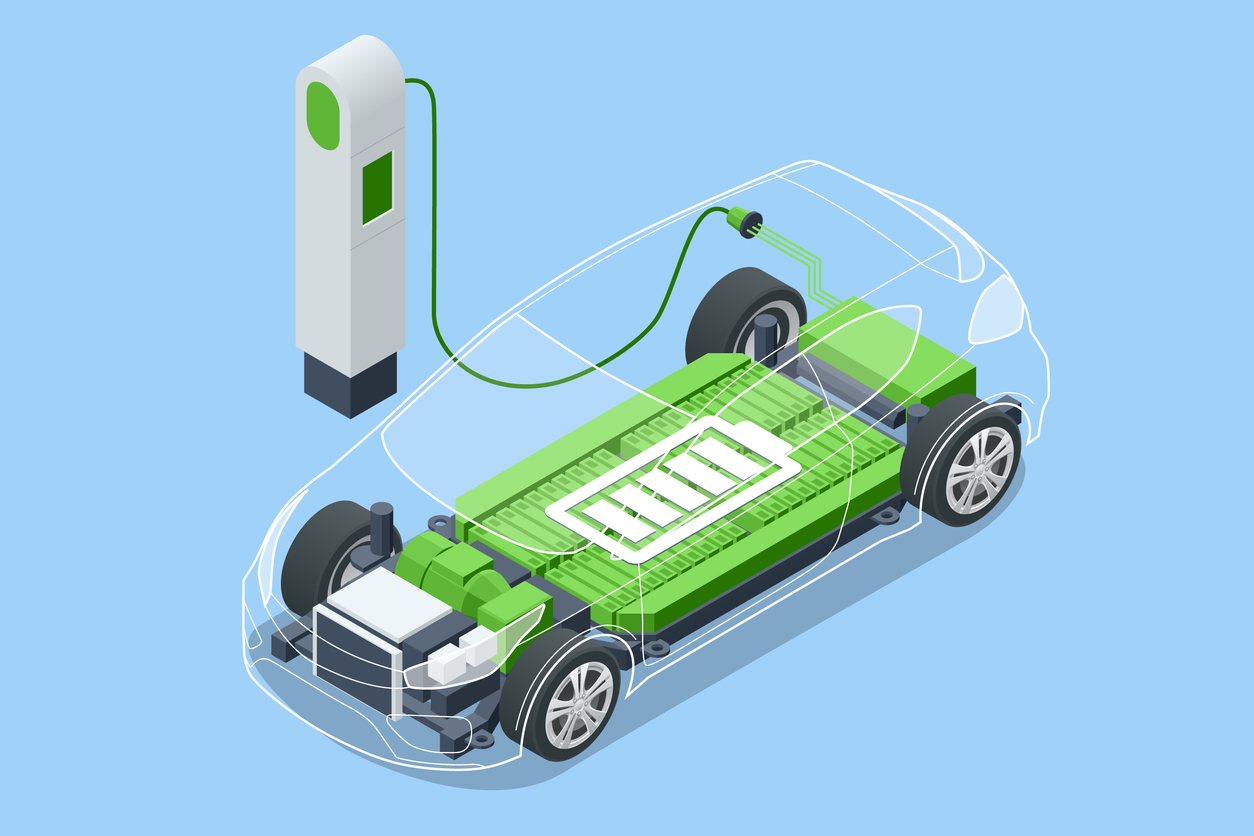- How Much is an Electric Car?
- Electric Cars Vs. Gas Cars: Which is the Smarter Buy?
- How Much Does it Cost to Charge an Electric Car?


What is the battery replacement cost for today’s electric vehicles? That depends…
Electric cars are continuing their climb toward mainstream adoption. EV sales are steadily increasing, supported by improved charging infrastructure, growing model variety, and government incentives. Yet many buyers still hesitate due to concerns about upfront costs and long-term maintenance—especially battery replacement.
While EVs are becoming more affordable overall, the battery pack remains the single most expensive part of the vehicle. Fortunately, all new electric cars sold in the U.S. include a battery warranty of at least eight years or 100,000 miles, with some automakers offering even more coverage. This means most owners will never need to worry about paying out of pocket for a battery replacement during typical ownership.
Battery degradation has also become less of a concern. Most EV batteries retain over 90% of their capacity even after 8–10 years of use. But eventually, every EV battery will degrade beyond practical use. If that happens outside of warranty, the cost of replacement will fall to the owner.
So what does that look like in 2025?
Plug-in hybrid vehicles—such as the Toyota Prius Prime, Chevrolet Volt, and Hyundai Ioniq—use relatively small battery packs, typically between 10 and 20 kilowatt hours. Replacement costs for these batteries range from $4,500 to $9,000, including labor, according to recent repair estimates.
Fully electric vehicles, which use much larger battery packs, have significantly higher replacement costs. The Chevrolet Bolt, for example, uses a 60 kWh battery with an estimated replacement cost of $12,000 to $16,000. The Nissan Leaf, which uses a slightly smaller battery, costs about $9,500 to $12,000 for a full battery replacement. Tesla does not publicly release battery pricing, but independent reports and owner invoices suggest that a Model 3 battery (75–82 kWh) costs between $13,000 and $17,000, depending on the configuration and labor costs.
Battery prices are influenced by global material costs, manufacturing scale, and repair labor rates. While raw materials like lithium and nickel surged in price a few years ago, they have since stabilized. That said, battery production still represents a large portion of total EV costs, and a new battery remains a significant expense once the vehicle is out of warranty.
There is some good news on the horizon. Automakers are increasingly using less expensive battery chemistries, such as lithium iron phosphate (LFP), to drive down costs. Others are investing in new technologies, including solid-state batteries, which could improve energy density, longevity, and charging times. These advancements are expected to reduce battery prices significantly over the next several years.
Until then, the high cost of battery replacement remains one of the key challenges in the widespread adoption of electric vehicles. While battery life and warranties provide peace of mind for most EV owners, out-of-pocket replacements are still costly—and worth factoring into long-term ownership considerations.





We respect your privacy. See our Terms and Privacy Policy.

Thanks for signing up!
Watch for the latest car research in your inbox every month.

Sorry, you aren't subscribed yet because we're experiencing temporary issues.
Please try again later or contact us at help@iseecars.com to subscribe. Thank you!